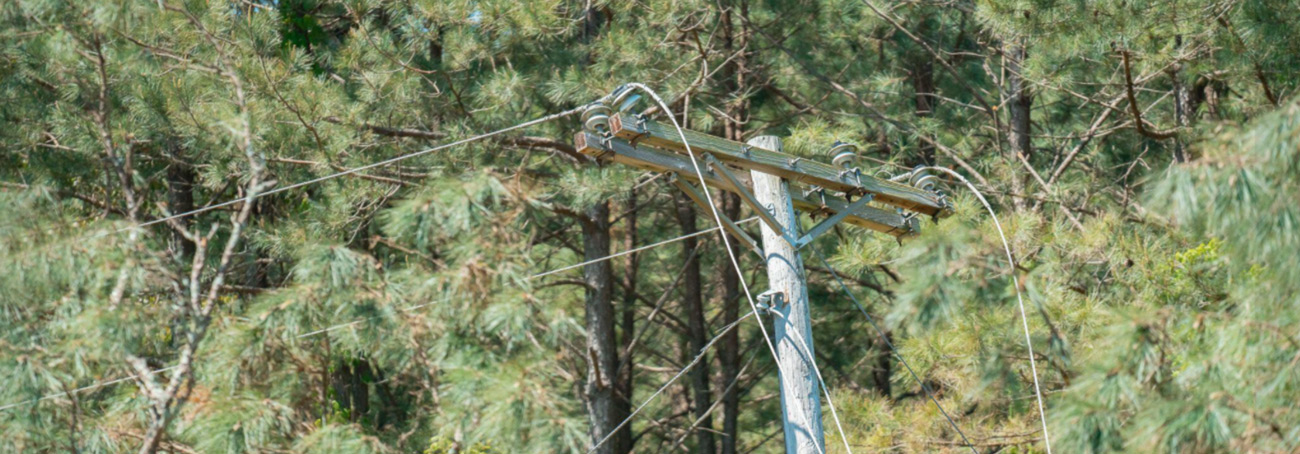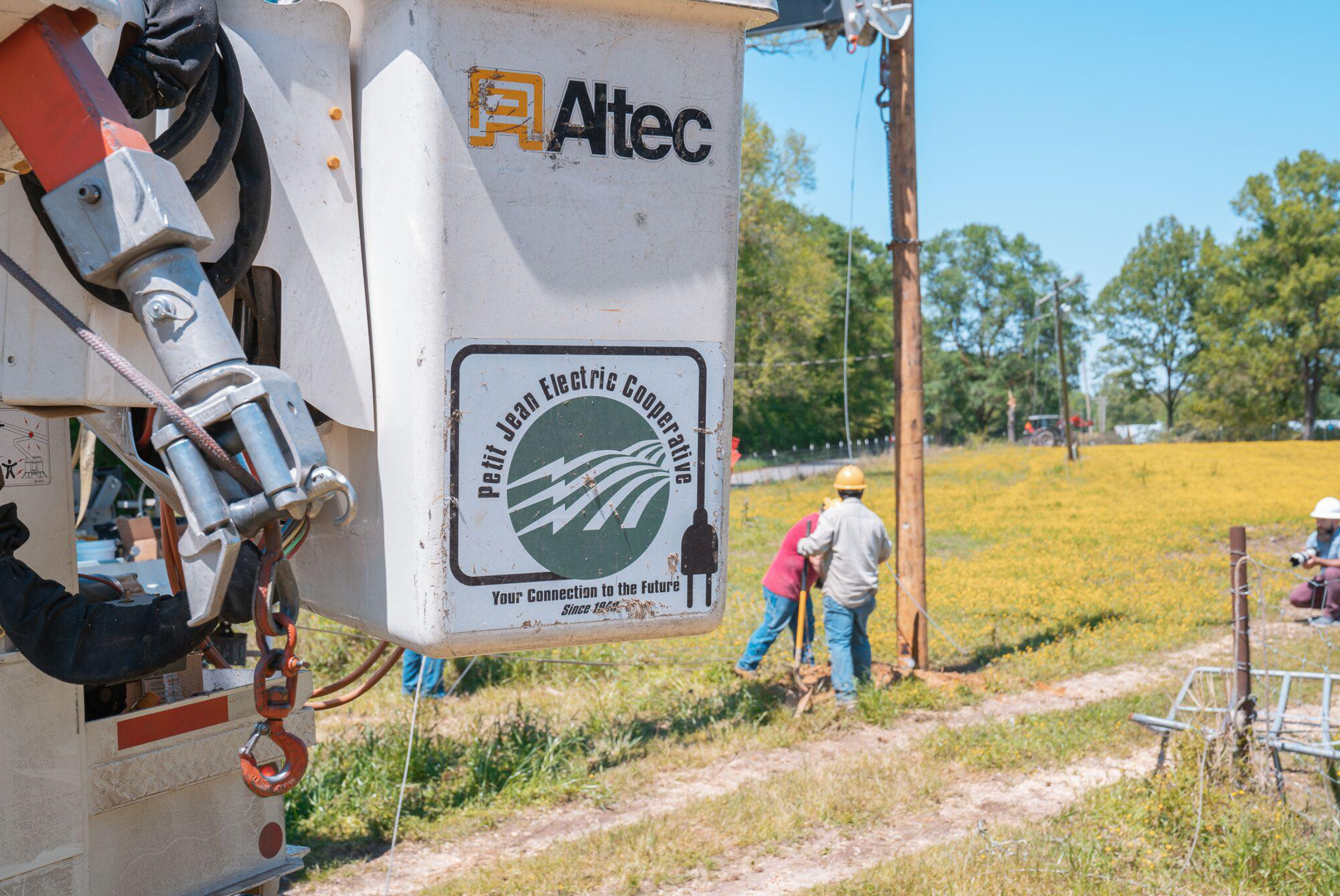Safety Tips

Downed Powerlines
Did you know that you do not have to touch a downed power line to be shocked by it? If a line that is aying on the ground becomes energized, it can energize the ground in all directions for as far away as 35 feet, depending on moisture and soil conditions.
In Arkansas severe weather can happen at any time of the year. Tornadoes, straight line winds, lighting, snow and ice storms can all cause damage to the power system and trees. After a storm, be mindful of downed trees and powerlines. Just because the power may be off at your home doesn't mean that the downed powerline is dead. Most people make the assumption that a live line on the ground will be humming or making sparks and that isn't always the case. Even a line that is dead can become energized during power restoration or due to improper use of generators.
If you do find a down powerline, report it to the local authorities and your power company. Always assume the line is live and keep people and pets as far away as possible. Stay away from anything that the line is in contact with, such as fences, metal culverts, highway guard rails, trees and vehicles, as they can also become energized and never drive over downed lines or through water that is in contact with them. It is also important to stay away from nearby electrical structures, as they could have sustained damage during the storm or can become energized.
Space Heaters
With the changing of the seasons comes the cooler temperatures. It's time to put away those summer clothes and get out that favorite jacket or sweater. It's also the time to start thinking about heating your home for the winter. That old furnace has been setting dormant for a few months, the old chimney could have soot build up from last season and those gas heaters have been collecting dust all summer. Now is the time to have your heating system serviced for both safety and reliability for the upcoming winter. According to the National Fire Protection Association, every year in the United States, an average of 52,050 fires are started by heating equipment, resulting in 490 deaths, 1400 injuries and over $1 billion in property damage.
Each year, a lot of people turn to a space heater for supplemental heat in that drafty room or under their desk at work but according to the Consumer Product Safety Commission, around 25,000 of those fires and 86% of the deaths are the result of space heaters. The leading factor in space heater fires is the improper placement of the heaters, while in operations.
If you currently use a space heater or are looking to purchase one, we would like to offer a few tips to keep you and your family safe.
- Only purchase heaters that have been tested by a nationally recognized testing laboratory to insure that it meets industry safety standards.
- Look for a heater with guards around the heating elements to help keep children and pets safe from accidental contact.
- Heaters are designed for a specific sized area. Be sure to purchase a large enough heater for the space you wish to heat.
- Make sure your heater has an automatic safety switch that will turn the unit off if it is tipped over.
- A unit that is thermostatically controlled will keep the area a constant temperature and prevent the unit from overheating and causing a hazard.
- Before using your space heater, read the manufacturer's instructions and warning labels carefully.
- Only place the unit on a hard, level surface that is a minimum of 3 feet from easily ignitable material, such as furniture, paper, clothing, carpet and curtains.
- Avoid placing the heater in high traffic areas, such as halls and doorways where they may be a tripping hazard or easily tipped over by children or pets.
- Plug your space heaters directly in the wall outlet if possible. Avoid the use of extension cords or power strips. If an extension cord must be used, make sure it is a heavy duty cord, marked 14 gauge or larger.
- A space heater should never be left unattended, turn it off before leaving the room or going to sleep.
While we hope these tips will help keep you and your family safe, fires can still happen. If you do not have a disaster plan, we strongly encourage you to set down with your family and make one. In the case of a home fire, one of the most important aspects of your plan should be a designated meeting place near the home. While a house fire can happen at any time, they are most common at night. During the confusion of a life changing event is not the time to not know the location of your loved ones. There are several good sources on line to help with disaster planning, including the websites of the American Red Cross and the National Fire Prevention Association.

